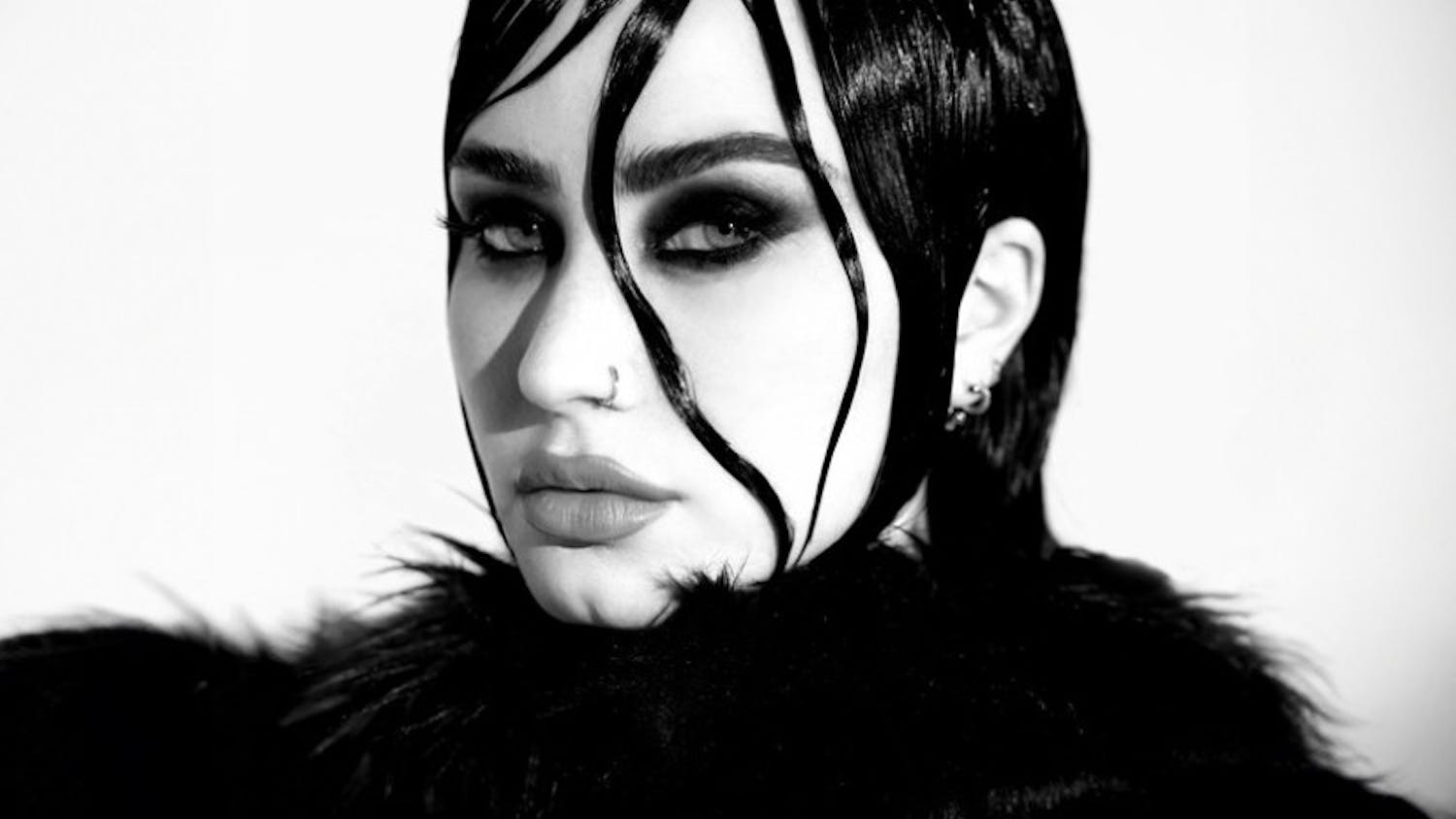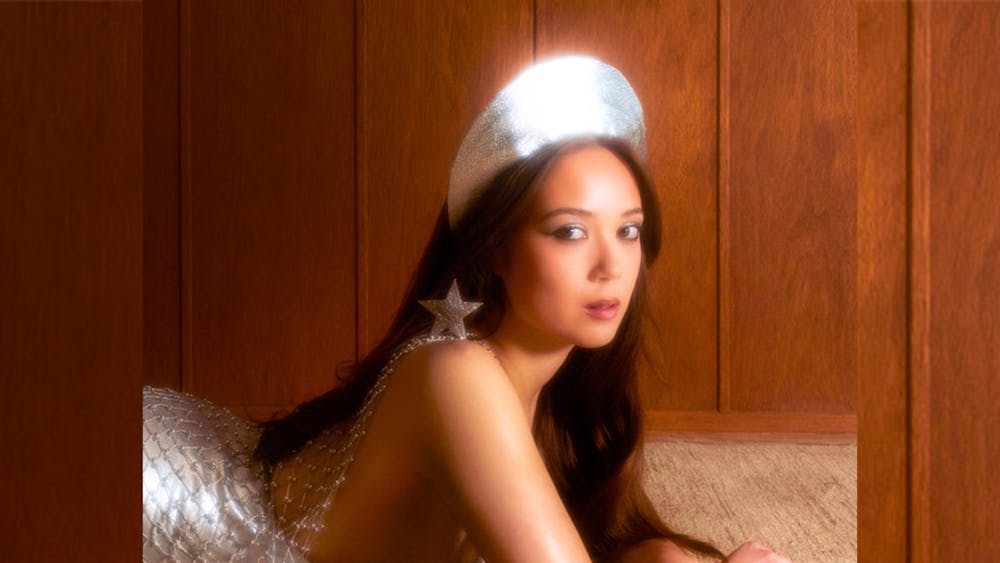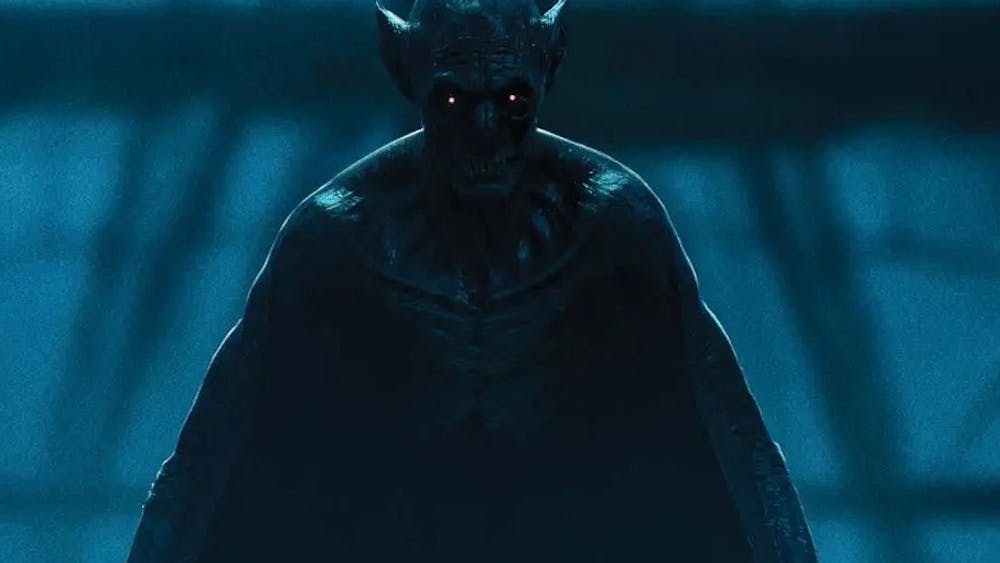For those looking to escape to another time and place, Franz Lehár's "Merry Widow" offers a delightful evening of humor and happiness. It is a simple love story in which the only complication is the stubbornness of some of the characters involved. Nobody dies in this opera, and the resolution is a happy one. Although idealized, it is an escape for the audience to the carefree days of Paris at the turn of the 19th century.\nUsing such a famous cultural backdrop as Paris for the opera allowed for some very creative stage designs. It is the stage design that first captures the eyes of the viewers. A faux-frame reminiscent of late 19th century operettas was constructed. Before the curtain rose, various scenes ranging from actual photographs of Paris to paintings by French impressionist and post-impressionist painters depicting "fin de siècle" or end of the century Parisian life were projected onto a screen. These images were projected throughout the opera, which gave a pleasantly unexpected artistic edge to the production and demonstrated wonderfully how effectively the visual effects can be to supplement the musical.\nThe sets, designed by the late Max Röthlisberger, also captured the elegance and sumptuousness of the time without being gaudy or crowded. The sets were shockingly simple -- most of the ornate decorative effects were achieved with light projections. This allowed more attention to be paid to the performers. The overall use of lighting to create scenery instead of objects was a very interesting, unique and successful scenery ploy in this opera which gave it a fresh and new feeling.\nThe costumes worn by the cast also deserve praise. They were true to the time period but still original in craft. The dresses worn by Hanna Glawari were simply stunning and their elegance gave the impression of a rich woman as much as the spoken parts did. The military costumes of Baron Zeta, Count Danilo and the French diplomat were also striking pieces in the flashy style of the time. The national costumes of the Petrovenians, crafted in the style of traditional Slavic dress, gave a very Eastern European feel to its scene and would almost convince one that Petrovenia was an actual place.\nIn spite of all these scenic delights, the star of the show was undoubtedly Vera Savage as Hanna Glawari. Savage sang extremely well, but her talent really showed in her ability to give a convincing and realistic portrayal of widow Glawari. As the title indicates, Savage made her character merry, playful and teasing.\nAnother effective dramatic portrayal was that of Jeremy Hunt as Count Danilo Danilovich. Danilo's emotions covered the entire range of the spectrum from rage to apathy to love-struck happiness and Hunt made each different state believable with smooth transitions between them.\nOther characters who deserve note were Jason Plourde as the conniving yet clueless Baron Zeta and Jonathan Stinson as the simply crazy Njegus, Count Zeta's clerk. While these characters were very monochromatic and provided the comic relief, they were not so overdone to make them ridiculous caricatures. \nSome of the acting, in general, was a bit over the top, but taking into account the comic nature of the opera and its counterbalance with effective acting, this flaw does not really do much to detract from the overall effect.\nThe orchestra did a wonderful job in capturing the music, but the music really was not what drew the viewer's attention. Rather, it served as a backdrop for the stage action, providing a pleasant and joyous atmosphere, much like the projections.\nAlthough the opera was performed in English rather than its original German, this did not present a problem, even to purists. Showing an opera that is so unmistakably Parisian in German would seem rather awkward and out of place. Performing it in French would not be true to the original format, so English is probably the most effective language for the work. The large amount of spoken parts in the opera were also better conveyed to the audience through English and the very comedic scenes struck home better because it could reach the audience members more directly through their own language.\n"The Merry Widow" is not exactly a majestic, monumental or deep opera, but the great effort and care put into this production definitely makes it worth seeing, especially if what one wants is the lighter side of opera.
'Merry Widow' an escape
Get stories like this in your inbox
Subscribe





